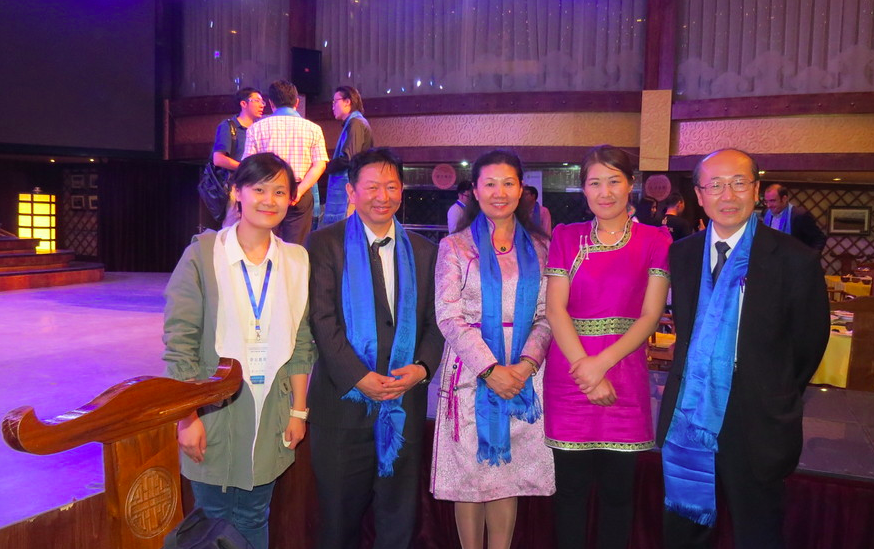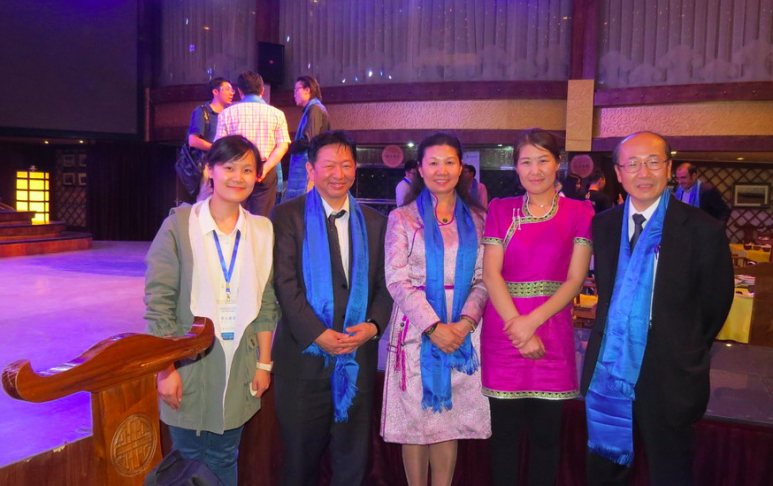Date: 27 – 28 September 2014
Country: China
 “The world would be lost without information and intercultural dialogue would be impossible without the sharing of that information. This is where the importance of the media comes in”. These were the introductory words of Dr Liu Binjie, the Dean of the Journalism School at Tsinghua University. The Beijing-based university was this year’s host of the UNESCO and UN Alliance of Civilisation’s Media and Information Literacy (MIL) and Intercultural Dialogue Conference.
“The world would be lost without information and intercultural dialogue would be impossible without the sharing of that information. This is where the importance of the media comes in”. These were the introductory words of Dr Liu Binjie, the Dean of the Journalism School at Tsinghua University. The Beijing-based university was this year’s host of the UNESCO and UN Alliance of Civilisation’s Media and Information Literacy (MIL) and Intercultural Dialogue Conference.

On 27 and 28 September, more than 200 Chinese and international participants exchanged experience in teaching and promoting critical thinking related to the media, and presented their research on either use of media or media content and discussed ways forward.
 While traditional deep-throat Mongolian singers who opened the event attracted huge curiosity, it was the Ethnic Minority Media session which was the most talked about; for the simple reason that two out of four presentations were about the media consumption in the disputed Tibetan region. For those gathered at the event – this was yet another sign of the Chinese authorities’ readiness to continue opening up about issues which once had been taboos.
While traditional deep-throat Mongolian singers who opened the event attracted huge curiosity, it was the Ethnic Minority Media session which was the most talked about; for the simple reason that two out of four presentations were about the media consumption in the disputed Tibetan region. For those gathered at the event – this was yet another sign of the Chinese authorities’ readiness to continue opening up about issues which once had been taboos.
Prof. Li Xiguang, Dean of Tsinghua University International Center for Communication, talked about the need to ‘have silence before we come to any conclusion’ adding: “Enlightenment happened in Europe 200 years ago. China had it 2000 years ago. Not only my students who practice ‘quiet journalism’ when participating in our Silk Road projects, but we all still have to keep enlightening ourselves.”
Andrea Cairola, a representative of UNESCO Beijing, the MDI strategic partner for China, emphasised the importance of respect for diversity, be it gender, youth or religion and tolerance as a starting point for any intercultural dialogue and understanding.
At the Conference the UNESCO-UNAOC Online Multimedia and Intercultural MIL Teaching Resource Tool was presented.
 The Media Diversity Institute’s Executive Director, Milica Pesic, presented the organisation’s latest work in the field of MIL – the training of Algerian high school teachers in how to teach Media Literacy.
The Media Diversity Institute’s Executive Director, Milica Pesic, presented the organisation’s latest work in the field of MIL – the training of Algerian high school teachers in how to teach Media Literacy.
“Apart from committed international organisations such as UNESCO, educators, formal and informal on all levels, from primary school to university, and civil society organisations; another crucial stakeholder is important here – journalists”, said Pesic.
“The more journalists practice responsible reporting – fair, accurate, balanced, inclusive and sensitive – the less work there would be for MIL experts. Only responsible journalism can foster social harmony, social inclusion and inter-cultural dialogue.” At the event, MDI formally joined the UNESCO-UNAOC Global MIL Alliance.
Apart from the state Xinhua News Agency which reported on the Conference, there were some 5 million mentions of it on different Chinese websites, which says something about the power of social media in a country with 600 million internet users.
For more information contact:

